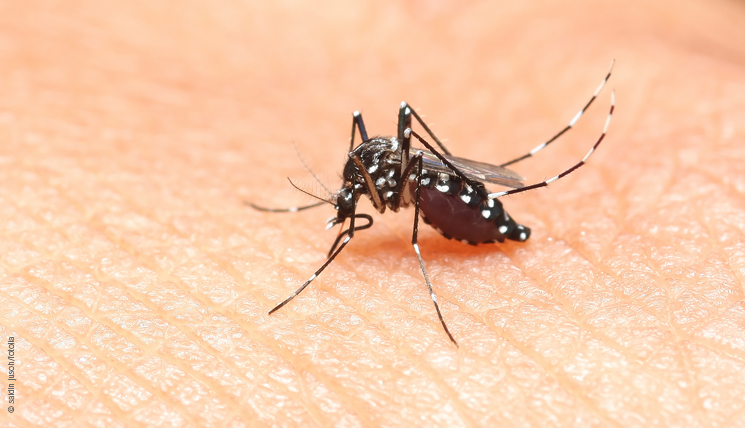They say mild winters bring mosquito plagues in the following spring/summer. This could also be the case this year – now that summer has eventually come.
Actually, there seems to be an even bigger problem with mosquitoes in Germany today. The climate change – which has so far had rather mild consequences in our latitudes – has promoted the spread of exotic mosquito species which may spread dangerous infectious diseases. This is also the subject of a current report of the German environmental agency on the consequences of climate change in Germany. Particularly the Southern German regions seem to be affected.
Since 2012 the Bernhard Nocht Institute for Tropical Medicine, Hamburg (BNI) has been coordinating a nationwide project in cooperation with different partners like the German Mosquito Control Association (KABS) aimed at identifying the import routes of the mosquito species Aedes albopictus (tiger mosquito) from Asia. This mosquito species is the vector of human pathogens like dengue or chikungunya viruses. Particularly along the motorways to Italy, adult specimens, as well as eggs and larvae of this insect were discovered. Italy is the country with the highest density of tiger mosquitoes in all Europe. The insects are presumed to travel from Italy to Germany as stowaways in travelers’ cars and campers, and lorries.
According to the BNI, the Japanese bush mosquito Ochlerotatus japonicas is already established in Germany, mainly in Baden-Württemberg. This mosquito is a potential vector of the West Nile virus. It has, however, not yet been confirmed whether the German specimens actually feed on human blood. The West Nile virus originates in Africa and travels across geographic borders with migratory birds.
To be able to diagnose such exotic infectious diseases quickly and to treat patients promptly, EUROIMMUN has developed numerous test systems for the diagnosis of tropical diseases in recent years. Amongst others, these include dengue, chikungunya and West Nile virus, as well as new diseases, such as the Middle East Respiratory Syndrome (MERS). EUROIMMUN is successfully cooperating with the Bernhard Nocht Institute in different projects on the diagnosis of tropical diseases.
